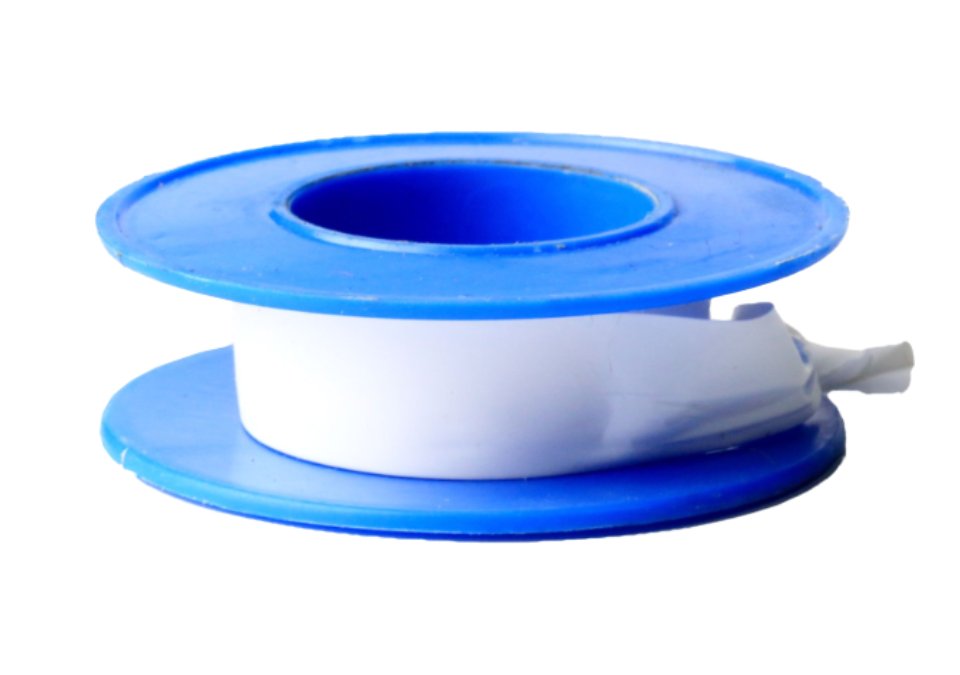The presence of Teflon tape in the realm of washing machine hoses has sparked deliberations about its necessity.
As individuals seek to optimize their plumbing systems, questions arise regarding the role of Teflon tape in ensuring leak-free connections. So, do I need Teflon tape for washing machine hoses?
Exploring the significance of this thin yet seemingly impactful material unveils insights into the world of plumbing practices.
Let’s discover more!
Do I Need Teflon Tape for Washing Machine Hoses?
No, you do not need Teflon tape for washing machine hoses. Teflon tape is actually a sealant used in plumbing applications to create a watertight seal between threaded fittings.
However, since washing machine hoses are typically attached to hose clamps rather than threaded fittings, there is no need for Teflon tape.
In fact, using Teflon tape on washing machine hoses could actually do more harm than good by making it more difficult to release the hose clamps if necessary.

Understanding Teflon Tape and Its Role
Teflon tape, also known as plumber’s tape or thread seal tape, is a thin, white tape made from polytetrafluoroethylene (PTFE), a synthetic fluoropolymer.
It’s known for its unique properties that make it an effective tool in plumbing applications. PTFE is chosen for its non-stick, heat-resistant, and chemical-resistant qualities, which are vital in sealing threaded connections.
Characteristics
Teflon tape is incredibly thin and flexible, making it easy to wrap around the threads of pipes and fittings.
Its most distinctive feature is its non-stick surface, which prevents threads from binding or seizing during installation and disassembly.
This property is essential for plumbing connections that may need to be reassembled or adjusted over time.
Additionally, Teflon tape is chemically inert, meaning it doesn’t react with water, oils, or most chemicals commonly found in plumbing systems.
This characteristic ensures that the tape won’t degrade or compromise the integrity of the connections it’s used on.
Creating a seal and preventing leaks
Teflon tape is primarily used to create a reliable and secure seal between threaded connections. When applied correctly, it fills the microscopic gaps between threads, ensuring a tight fit and minimizing the chance of leaks.
The tape acts as a lubricant during assembly, allowing components to be tightened to the appropriate torque without causing damage or excessive stress on the threads.
The tape’s non-stick nature and the way it conforms to the threads also help prevent the accumulation of debris and mineral deposits that could lead to leaks over time. This contributes to the overall longevity of the plumbing connections.
Historical use
Teflon tape has a rich history in plumbing applications, dating back to the mid-20th century. Its discovery and development were driven by the need for a reliable way to seal pipe threads, particularly in situations where airtight or watertight connections were crucial.
Over the years, Teflon tape gained popularity among plumbers and homeowners alike for its ease of use and effectiveness in preventing leaks.
The tape’s use in plumbing has expanded beyond just water pipes to various applications, including gas lines, hydraulic systems, and even appliances like washing machines.
Its versatility and proven track record in sealing threaded connections have solidified its position as a staple in plumbing toolkits.
Should I Use Teflon Tape on Washer Hoses?
Yes, you should use Teflon tape on washer hoses. This will help to create a watertight seal and prevent any leaks. Make sure to apply the tape in a spiral motion, starting from the middle and working your way out.
Don’t forget to also turn off the water supply before beginning this project!
Read more: Do Washing Machines Come With A Drain Hose?
Benefits and Drawbacks of Using Teflon Tape
Teflon tape has become a staple in plumbing applications due to its numerous benefits. Still, like any solution, it’s important to consider both its advantages and potential drawbacks when deciding whether to use it for washing machine hoses.
Advantages
- Enhanced Sealing and Leak Prevention: Teflon tape’s primary advantage is its ability to create a reliable seal between threaded connections. When properly applied, the tape fills gaps between threads, helping to prevent the escape of liquids or gases. This is particularly crucial in washing machine hoses, where leaks can lead to water damage, mold growth, and even structural issues.
- Versatility: Teflon tape is compatible with a wide range of plumbing materials, including copper, brass, plastic, and stainless steel. This versatility means it can be used in various household plumbing applications beyond just washing machine hoses.
- Ease of Use: Applying Teflon tape is relatively straightforward, making it accessible for both professional plumbers and DIY enthusiasts. Its thin and pliable nature allows it to conform to threads easily.
Drawbacks
- Improper Application: One of the most common drawbacks of using Teflon tape is improper application. If the tape is applied incorrectly, such as wrapping it in the wrong direction or using too much tape, it can lead to leaks. Additionally, using too much tape can cause threads to bind, making it challenging to achieve the desired tightness.
- Maintenance Challenges: Over time, Teflon tape can deteriorate, especially in high-temperature or high-pressure environments. Repeated disassembly and reassembly of connections can cause the tape to shred or wear out, potentially leading to leaks. Regular inspection and replacement may be necessary to maintain a reliable seal.
Conclusion
So, do I need Teflon tape for washing machine hoses? The use of Teflon tape for washing machine hoses is a subject of debate.
While some experts argue that it helps create a tighter seal and minimizes the risk of leaks, others suggest that modern washing machine hoses with built-in gaskets might not require Teflon tape.
Factors such as the type of hose, its threading, and personal preference come into play. Overall, you do not need to use Teflon tape.







